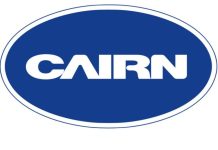Sonnet BioTherapeutics Holdings, Inc., a clinical-stage company developing targeted immunotherapeutic drugs, entered into a licensing agreement with Alkem Laboratories Limited for the research, development, manufacturing, marketing and commercialization of its molecule SON-080 for the treatment of diabetic peripheral neuropathy (DPN) in India and the manufacturing, marketing and commercialization of chemotherapy induced neuropathy (CIPN) and autonomic neuropathy in India.
SON-080 has the same mechanism of action for these three neuropathies. Additionally, the Company announced the release of a “What This Means” segment to discuss the transaction.
SON-080 is Sonnet’s proprietary version of recombinant human interleukin-6 (rhIL-6) that builds upon previous work with atexakin alfa. Under the terms of the licensing agreement, Alkem will pay Sonnet $1.0 million in upfront payments and up to an additional $1.0 million in milestone payments as set forth in the Licensing Agreement.
Additionally, Sonnet is entitled to receive a royalty equal to a percentage in the low double digits of the net sales of the product upon commercialization of SON-080 in India less certain expenses as set forth in the Licensing Agreement.
Alkem will conduct all clinical trials it believes appropriate to obtain regulatory approval in India for SON-080 for the treatment of DPN. Upon payment of a Clinical Data Access fee for phase 2 and phase 3 clinical trials, Sonnet will be able to use this data for partnering in any geography outside of India.
Pankaj Mohan, Founder and Chief Executive Officer of Sonnet commented, “We are excited to partner with Alkem and look forward to advancing SON-080 into Phase 2 clinical development. We believe that Alkem is the ideal partner with significant experience and expertise. Additionally, the data generated from Alkem’s planned Phase 2 study will enable us to establish additional partnerships in other key markets for a clinical data access fee and potentially provide patients with DPN a much-needed therapeutic option. We believe DPN represents a significant unmet medical need, with a global market projected to reach approximately $6.8 billion by 2030”.
Dr. Akhilesh Sharma, President and Chief Medical Officer, Alkem added, “We are very pleased to partner with Sonnet for this important program. We believe SON-080 is a unique asset that has demonstrated promising disease modification potential for DPN a high unmet medical need. There is a large prevalence of DPN in India, which we believe underscores the need for its development in this territory and potential value”.
DPN is a painful and extremely disabling disease that typically occurs in about 50% of diabetic patients. Current therapeutics focus primarily on pain symptoms due to lack of modulation treatments, however, such treatments do not address the non-pain symptoms resulting from nerve degeneration. Low dose IL-6 has been shown to stimulate peripheral nerve growth in preclinical models, thereby ameliorating motor and sensory functions and normalizing the associated pain or sensation disturbance of neuropathy.
SON-080 has undergone many years of development, in which previous clinical trials have generated safety data from over 200 patients. SON-080 has demonstrated compelling preclinical efficacy data in both DPN and CIPN, including reproducibly demonstrating the ability to prevent the development of neuropathy and reverse established neuropathy when assessed by nerve conduction, histological integrity and sensorimotor function measurements.
The Company announced encouraging data from the completed Phase 1b portion of its ongoing Phase 1b/2a clinical trial evaluating SON-080 for the treatment of CIPN (the “SB211 study”). The data demonstrated SON-080 to be well-tolerated at both doses, with no evidence of a pro-inflammatory cytokine response.
As per the press release, pain and quality of life survey results suggest the potential for rapid improvement of peripheral neuropathy symptoms and post-dosing durability with both doses, compared to placebo controls.
































